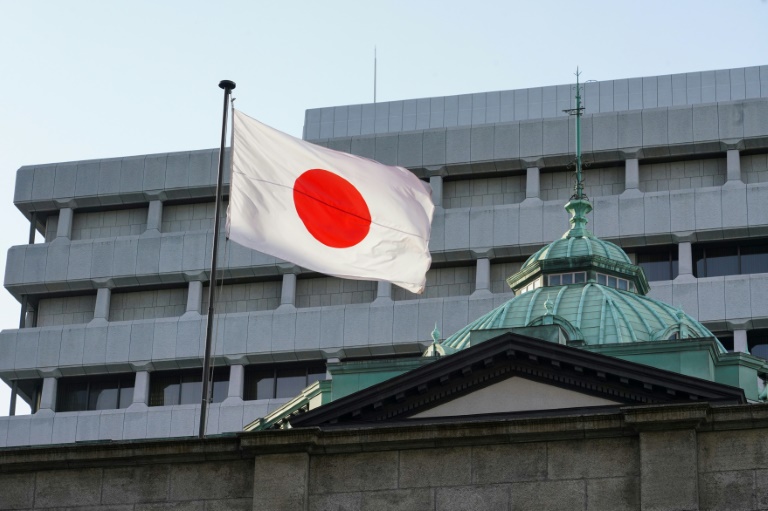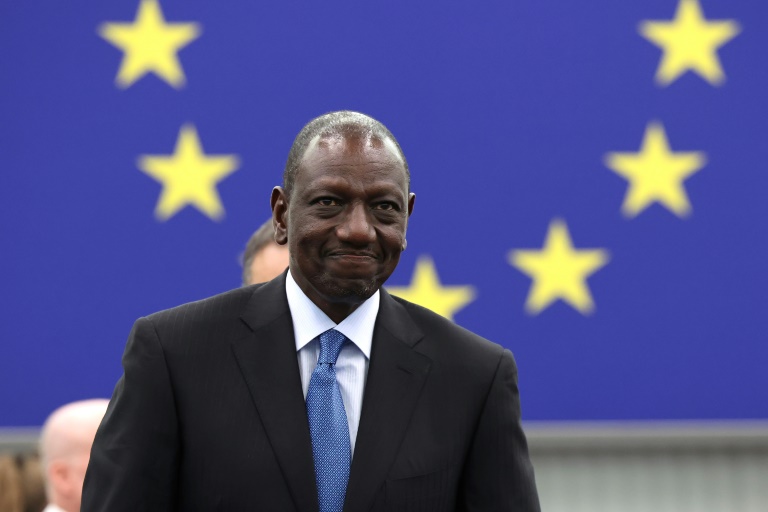Asian markets fell Monday as traders took a step back following last week’s rally, with Federal Reserve officials looking to temper expectations the US central bank will cut interest rates several times next year.
Investors are also keeping tabs on the Bank of Japan’s meeting this week, though recent speculation that it will shift away from its ultra-loose monetary policy has faded, with observers tipping a move in the new year.
Equities look set to end the year on a high after the Fed suggested it will begin loosening monetary policy after a string of data showed inflation coming down and the economy on course for a soft landing.
The Dow and Nasdaq hit record highs on Wall Street as tech firms surged, but the buying frenzy slowed Friday as investors took a step back, which analysts said was to be expected after the latest advances.
Asia struggled at the start of this week, with Hong Kong down more than one percent, while Tokyo, Shanghai, Sydney, Singapore, Mumbai, Bangkok, Taipei, Manila and Jakarta were also in the red.
Wellington and Singapore eked out small gains, however.
A number of Fed officials lined up last week to douse expectations they will slash rates next year. Some observers have predicted as many as six, but the bank’s “dot plot” forecast saw three.
New York Fed chief John Williams told CNBC that “we aren’t really talking about rate cuts”, adding it was “just premature to be even thinking about” a March cut, which some experts have suggested.
“If we get the progress I’m hoping to see… of course it would be kind of natural… (to) move monetary policy over a period of years back to more normal levels”.
Atlanta Fed boss Raphael Bostic said he foresaw two reductions from the third quarter, while his Chicago counterpart Austan Goolsbee warned that policymakers would be unlikely to move until they were convinced inflation was brought to heel.
The Bank of Japan’s own decision is due Tuesday, and while there has been talk that it is about to shift away from years of ultra-loose policy, analysts do not expect it to do so for a few months.
Officials have kept rates in negative territory and stuck to a policy of controlling bond prices in a bid to boost the economy, but with inflation rising and the yen struggling, they are now said to be shifting.
“The BoJ has little need to rush into making policy changes,” said economists at Societe Generale.
“But markets will be watching for any sign the board is willing to end negative rates or yield curve control.”
Tokyo – Nikkei 225: DOWN 0.6 percent at 32,758.98 (close)
Hong Kong – Hang Seng Index: DOWN 1.1 percent at 16,605.52
Shanghai – Composite: DOWN 0.4 percent at 2,930.80 (close)
Dollar/yen: DOWN at 142.16 yen from 142.22 yen on Friday
Euro/dollar: UP at $1.0918 from $1.0897
Pound/dollar: UP at $1.2690 from $1.2677
Euro/pound: UP at 86.04 pence from 85.94 pence
West Texas Intermediate: UP 1.0 percent at $72.13 per barrel
Brent North Sea crude: UP 1.0 percent at $77.30 per barrel
New York – Dow: UP 0.2 percent at 37,305.16 (close)
London – FTSE 100: DOWN 1.0 percent at 7,576.36 (close)







